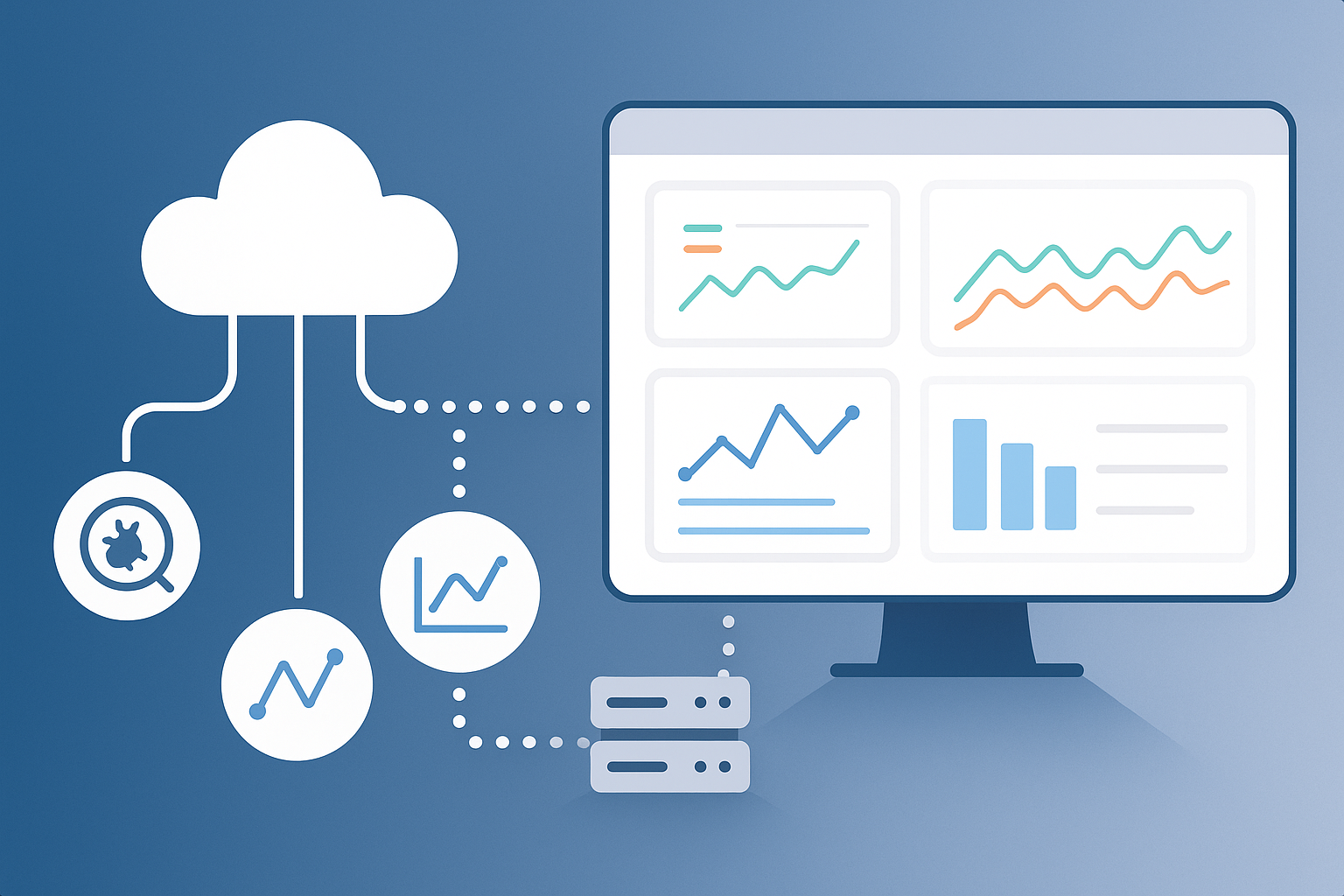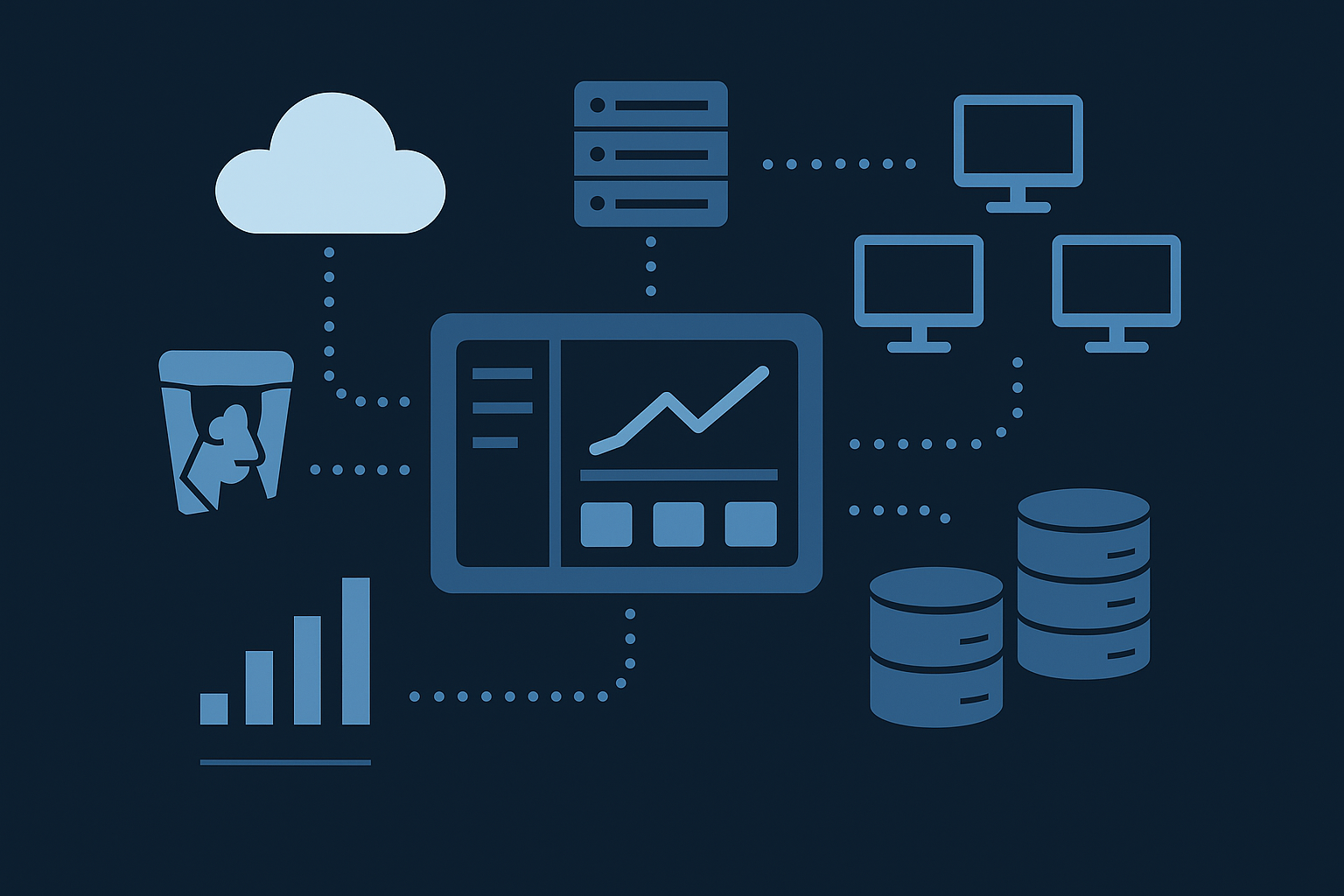Choosing the Right Monitoring | 매거진에 참여하세요
Choosing the Right Monitoring
#Monitoring #DevOps #Observabil #Datadog #Grafana #SigNoz #APM #Pricing #Tooling #Infra
Datadog vs SigNoz vs Grafana: Observability Is Not a Luxury—It’s Survival
Modern applications don’t run on a single server anymore.
They run across dozens of microservices, handling hundreds of APIs, and serving thousands of concurrent user requests in real-time.
In this complex environment, observability isn’t optional—it’s existential.
And observability isn’t just logs.
It’s the unified visibility across metrics, logs, and traces, allowing you to see your system’s behavior as a whole.
Three tools lead the charge in this domain: Datadog, Grafana, and SigNoz.
Each evolved from different roots, but they’re converging on the same goal—complete visibility.
1. Datadog: The King of SaaS-Based Observability
Datadog has become the go-to platform for cloud-native monitoring.
As a fully-managed SaaS tool, it offers a powerful all-in-one observability suite—covering APM, infrastructure, logs, security, RUM (Real User Monitoring), and more.
Key Features:
- Auto-instrumentation with support for many languages
- Unified dashboards and alerting systems
- Full-text search across logs
- Collaborative tools like annotations and shared views
- Deep cloud integrations (AWS, GCP, Azure, etc.)
The biggest strength? Ease of use.
Datadog is beginner-friendly and fast to onboard—perfect for startups and enterprises alike.
The catch?
It gets expensive.
As traffic and data grow, costs scale aggressively.
For high-volume workloads, Datadog can become a budget concern.

2. Grafana: The Open Source Visualization Champion
Grafana began as a dashboard tool for time-series data.
It connected to Prometheus, InfluxDB, Elasticsearch, and displayed beautiful visualizations.
Now? It’s evolved into a full observability stack, with its own cloud platform and open-source ecosystem.
Core Components:
- Grafana: Dashboard UI
- Prometheus: Metrics
- Loki: Logs
- Tempo: Traces
- Mimir: Scalable metrics backend
Strengths:
- Highly customizable and plugin-rich
- Fully open-source and cost-effective
- Self-hosting offers complete control
Challenges:
- Setting up the full Grafana stack requires DevOps expertise.
- It’s powerful—but not plug-and-play. For teams without infra experience, the learning curve can be steep.
3. SigNoz: The Indie Open Source Challenger
SigNoz is a rising star in the observability space, coming out of India with a bold mission:
To offer an open source APM solution that blends the best of Datadog and Grafana.
Built on OpenTelemetry, SigNoz supports full observability—metrics, traces, and logs—while remaining lightweight and self-hosted.
Highlights:
- Automatic instrumentation with OpenTelemetry
- Intuitive UI modeled after Datadog
- Docker-based local install
Supports logs, traces, APM—all in one platform
Full open-source + paid enterprise option
SigNoz is a great fit for teams who want a self-hosted solution that’s easier than Grafana and cheaper than Datadog.

Side-by-Side Comparison
Feature | Datadog | Grafana Stack | SigNoz |
|---|---|---|---|
Deployment | SaaS (Managed) | Self-hosted or Cloud | Self-hosted (Docker) |
Onboarding | Easiest | Complex | Medium |
Pricing | Expensive at scale | Free + optional paid tier | Free + affordable paid |
Key Features | APM, RUM, Logs, Sec | Metrics, Logs, Traces | APM, Logs, Traces |
Community | Enterprise-heavy | Massive OSS community | Growing, startup-focused |
Extensibility | Native integrations | Plugin-based flexibility | Rapid evolution |
Monitoring Reflects Your Team's Identity
All three tools are excellent.
The right one depends on your team’s skillset, budget, and operational goals.
- Choose Datadog if you want to get started fast, with little infrastructure overhead.
- Choose Grafana if you prioritize customization and cost control.
- Choose SigNoz if you want the best of both worlds—self-hosted, intuitive, and open-source.
Final Thought: You Can’t Improve What You Can’t Observe
Monitoring isn’t just about uptime or latency metrics.
It’s about closing the loop between issue detection, root-cause analysis, and product improvement.
And the more clearly you see, the better you can build.






